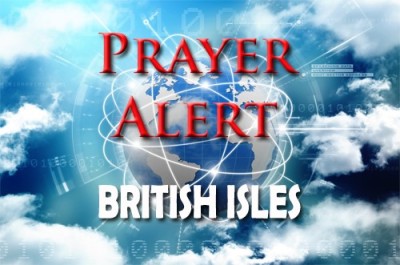In the UK, 64% of people have noticed an increase in deprivation in their communities this year. This surge, linked to cost of living concerns and the global situation, is dampening Christmas spirits for many. Major Estelle Blake of the Salvation Army has highlighted the combination of financial stress and loneliness affecting people, with examples of older individuals riding buses all day or spending hours in cafes for minimal social contact. The Salvation Army aims to bring comfort and connection, not just through material aid but through genuine human interaction. This year, it is distributing 76,000 toy parcels and providing 3,000 beds for the homeless. Major Blake urges Christians to reach out to those in need, offering food and companionship, especially during Christmas. She emphasises the importance of long-term engagement beyond the holiday season; the Salvation Army operates residential and emergency pop-up centres in collaboration with other churches. Major Blake herself plans to spend Christmas Day with those in need.
A budget crisis in Germany has struck at the heart of the ambitions of the ruling Green Party within the coalition government led by Chancellor Olaf Scholz. The crisis centres around a significant budget shortfall, partly caused by the Greens' ambitious climate policies and the economic impact of the Covid pandemic. The Greens had planned to invest heavily in green initiatives, but the financial constraints have forced them to reconsider and scale back their plans. The crisis has also highlighted tensions within the coalition, with the Greens pushing for increased borrowing to fund their projects, while others are concerned about the country's fiscal stability. Chancellor Scholz faces the challenge of finding a balance between green policies and economic responsibility.
Hungary: Orban opposes Ukraine joining EU
07 Dec 2023Hungary's ruling party, Fidesz, has submitted a resolution opposing Ukraine's accession talks with the European Union (EU). Fidesz, led by Prime Minister Viktor Orban, cited concerns about the treatment of ethnic Hungarians in Ukraine, particularly regarding language rights and education. The resolution calls for a halt to Ukraine's EU accession process until these issues are resolved. Hungary has been critical of Ukraine's policies towards its Hungarian minority for years, and this move adds to the ongoing tensions between the two countries. Ukraine has been seeking closer ties with the EU, but Hungary's opposition could complicate those efforts. On 7 December, Volodymyr Zelensky’s chief of staff called for a meeting between Orban and Zelensky, in an attempt to resolve the problem before next week’s meeting of EU states.
COP28: possible breakthrough on fossil fuels?
07 Dec 2023The UN climate change conference in Dubai, hosted by the United Arab Emirates, is on the verge of a significant breakthrough in addressing climate change. The UAE negotiating team expresses 'cautious optimism' that COP28 will commit to gradually reducing and possibly eliminating fossil fuels over the coming decades. This is a remarkable shift, as fossil fuels were rarely discussed at previous climate conferences until COP26 in Glasgow in 2021, where the focus was on phasing down coal. While the commitment in Dubai may not set a specific expiry date for fossil fuel use and will probably allow for ‘abated’ fossil fuels with carbon capture, it represents a historic acknowledgment of the need to address the primary source of climate change. Sultan al-Jaber, COP28 president and head of UAE state oil company Adnoc, has been advocating for a fossil fuel phase-out; this underscores the significance of addressing climate change even in such a major oil-producing country. Interestingly, the number of delegates representing fossil fuel interests has quadrupled compared to COP27: see
Gaza: latest developments
07 Dec 2023On 6 December Israeli troops fought fierce battles with Hamas in an expanding offensive into southern Gaza, forcing tens of thousands of displaced Palestinian civilians to cram into a city close to the Egyptian border to avoid Israeli bombardment. However, many feared they would not be safe in Rafah either, with their options for refuge dwindling, and at least nine people were killed when a house in the city was shelled. Hundreds of thousands of Palestinians who fled to the south during the two-month-old war between Israel and Hamas are now increasingly cornered in an area deemed safe by Israel's military. UN Secretary General António Guterres has called on Security Council members to avert a humanitarian catastrophe In other news, harrowing details have been released about the acts of sexual violence committed by Hamas fighters when they attacked Israel on 7 October. See
On 5 December Volodymyr Zelensky called off a high-profile video briefing with US lawmakers amid an impasse over future funding for the country. This came after a top Ukrainian official warned they might lose the war against Russia if more US military aid is not approved. Despite a push by the White House, Congress is still not close to a deal on a compromise spending package that would help fund the war effort. Mike Johnson, the Republican Speaker, said, ‘The Administration has failed to substantively address any of my conference's legitimate concerns about the lack of a clear strategy in Ukraine, a path to resolving the conflict, or a plan for adequately ensuring accountability for aid provided by American taxpayers.’ This setback comes as fighting on the frontlines appears to have more or less reached a stalemate. Ukraine's much-anticipated counter-offensive in the south appears to have slowed down, and they are struggling to maintain a foothold they had established on the east bank of the Dnipro river.
The heads of three top US colleges, including Harvard's president Claudine Gay, have testified before the House of Representatives in response to accusations that their institutions were not doing enough to combat antisemitism on campus. Jewish students at these universities had reported facing antisemitic threats and assaults, particularly due to the conflict in Gaza. The college leaders acknowledged the rising tide of antisemitism and Islamophobia on campuses but highlighted the challenge of balancing freedom of speech and protest with protecting students from hate. A recent survey found that nearly 75% of Jewish college students had experienced some form of antisemitism during the school year. Muslim and pro-Palestinian students also faced challenges, with instances of doxxing (public identification of people without their consent) and bias incidents reported. The House committee questioned the colleges' response to these issues.
The USA, Japan, and the European Union have expressed their willingness to collaborate with Madagascar's re-elected president Andry Rajoelina, provided he ensures electoral reforms in the country. The country has a history of election crises; the most notable one, in 2009, ended in a coup that installed Rajoelina as president and led to violence between demonstrators and security forces. He has now been re-elected for a third term, with 59% of the vote, but there were numerous claims of irregularities and vote rigging, and ten of the candidates boycotted the election, leading to a low voter turnout. Rajoelina is being urged to implement electoral reforms that will foster transparency, fairness, and inclusivity in the electoral process - reforms which are crucial for restoring international confidence. Madagascar has one of the highest poverty rates in the world, reaching 75% in 2022. Before the elections, there were fears that social difficulties and the economy, battered by climate change and politics, would get worse if the outcome didn't reflect the will of the people.







